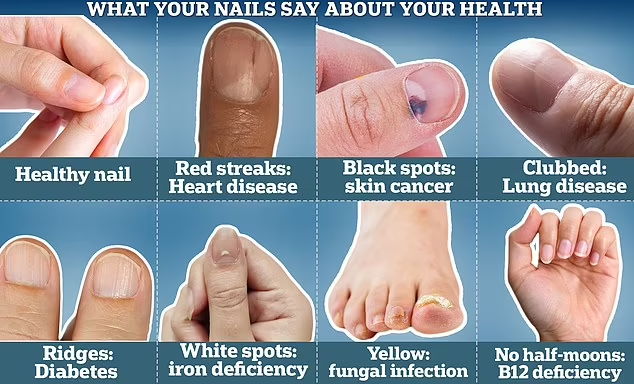A renowned longevity expert, Dr. David Sinclair from Harvard Medical School, has suggested that the speed of your fingernail growth could offer clues about how long you may live. According to Dr. Sinclair, nail health reflects how quickly the body generates new, healthy cells—essential for resisting age-related decline.
Biological age refers to how old your cells and tissues function, which can differ from your chronological age (the number of birthdays you’ve had). Speaking on his podcast Lifespan, Dr. Sinclair noted, “The rate of your nail growth is a good indicator of how you’re ageing or not ageing.”
He referenced a 1979 study in which researchers tracked nail growth in hundreds of people. They found that after age 30, fingernail growth slowed by about 0.5% per year. Faster nail growth compared to peers of the same age may indicate a slower rate of biological ageing.
Dr. Sinclair admitted he keeps a close eye on his own nail growth, often considering how long it’s been since his last trim. Nail growth tends to slow with age due to reduced blood circulation, which limits the nutrients available for growth. Other factors, such as diet and hormone levels, also play a role—nail growth often accelerates during puberty and pregnancy.

Nail appearance can reveal more than just ageing, potentially signaling various health issues:
- Ridges: Normal with ageing, but in younger people, they may point to conditions like mumps, diabetes, or dietary deficiencies (e.g., vitamin A, zinc, calcium, or iron).
- Black Spots: Could indicate melanoma or warts under the nailbed.
- White Spots/Lines: May signal a lack of zinc, calcium, or iron, or a fungal infection.
- Clubbing: When nails widen and curve around the fingertips, it could suggest chronic heart or lung conditions causing low oxygen levels (hypoxia).
Experts recommend monitoring any changes in nail shape or color and consulting a healthcare provider if something seems unusual.
Despite his respected status, Dr. Sinclair faced criticism last year for promoting a controversial anti-ageing pill for dogs, leading to his resignation from the Academy for Health and Lifespan Research.












